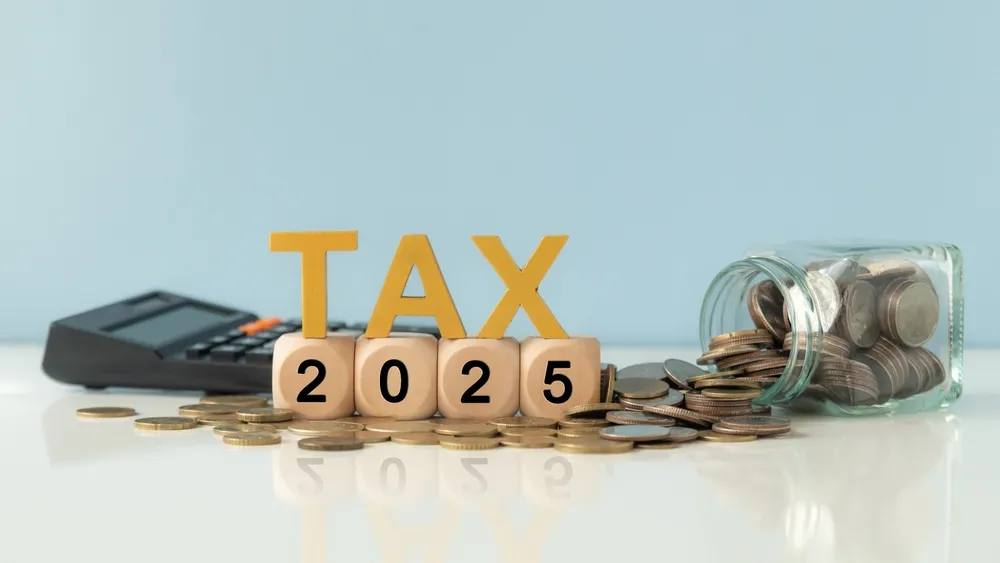Personal Finance News
Income-tax bill 2025: When can tax officials check your email, social media, trading and bank accounts?

4 min read | Updated on March 06, 2025, 16:49 IST
SUMMARY
As per the Income-tax Bill 2025, if tax officials have reasons to believe that you are deliberately hiding details of an undisclosed income then they may ask you provide access to your virtual digital spaces. If you fail to provide access or assist them in their investigation, then they may break into them to find out.

The new income-tax will come into effect from April 1, 2026. | Image source: Shutterstock
The Income-tax Bill 2025 has proposed to allow tax officials to access the virtual digital space of taxpayers during search and seizure. This provision will enable tax officials to examine emails or trading and bank accounts, or any website on which a person might be hiding an undisclosed income.
However, the tax officials cannot just randomly pick a person and check his/her online accounts. The new bill has proposed certain conditions under which the income tax officials can access a taxpayer’s personal online accounts.
This article breaks down the rules proposed in the bill to provide a clear understanding of these provisions.
Is this a new rule?
No, the proposal mentioned in the new income tax bill is not new, but just a clearer reiteration of the existing norms on search and seizure.
The current law also permits tax officials to inspect electronic records during search and seizures. Tax officials can get into virtual spaces even now if they have reasons to believe that a taxpayer is hiding any undisclosed income.
Currently, however, a person may approach a court claiming his personal space has been encroached upon by the tax department if they check their emails or social media accounts during search and seizure. Hence, this provision on virtual digital space has been specifically mentioned in the new bill to prevent future litigations.
Further, the new bill's provision will also ensure that undisclosed income from virtual digital assets such as cryptocurrencies are not overlooked during the search and seizure.
That said, now let’s decode the meaning of virtual digital space first as per the new bill.
What is a virtual digital space as per the new bill?
According to the bill, the virtual digital space means “an environment, area or realm, that is constructed and experienced through computer technology” and includes the following:
- Email servers
- Social media account
- Online investment account
- Trading account, banking account, etc.
- Any website used for storing details of ownership of any asset
- Remote server or cloud servers
- Digital application platforms
- Any other space of similar nature.
What does the new bill specifically state?
It says, tax officials can "break open the lock of any door, box, locker, safe, almirah, or other receptacle for exercising the powers conferred by clause (i), to enter and search any building, place, etc., where the keys thereof or the access to such building, place, etc., is not available, or gain access by overriding the access code to any said computer system, or virtual digital space, where the access code thereof is not available."
When can the taxman get into your virtual digital space?
As per the proposed bill, if tax officials have reasons to believe that you are deliberately hiding details of an undisclosed income then they may ask you provide access to your virtual digital spaces.
If you fail to provide access or assist them in their investigation, then they may break into them to find out.
However such extreme measures will happen only after the income-tax department has issued to summons or notice to a taxpayer but s/he has failed to provide adequate response.
Can any tax official check your personal online accounts?
No. As per the bill, the virtual digital space of a taxpayer suspected to be hiding undisclosed income can be checked by joint director or joint commissioner or assistant director or assistant commissioner or income-tax officer authorised by the income-tax department.
The authorised joint director or joint commissioner may also authorise any assistant director or assistant commissioner or income-tax officer to conduct such search and seizure.
The new income-tax will come into effect from April 1, 2026. However, its provisions are yet to be approved by the Parliament.
Related News
By signing up you agree to Upstox’s Terms & Conditions
About The Author
Next Story



